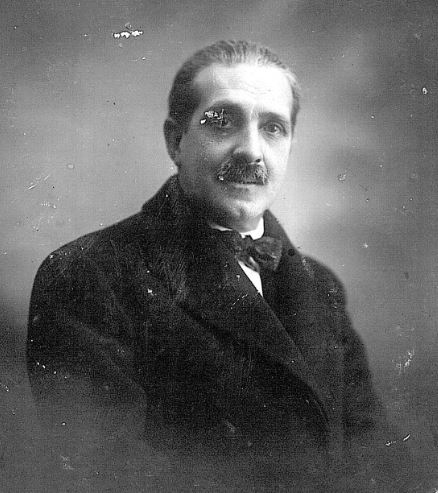 Persona - Espinós, Víctor (1871-1948)
Persona - Espinós, Víctor (1871-1948)
Identificación
Tipo:
Persona
Forma autorizada:
Espinós, Víctor (1871-1948)Otras formas
Fechas de existencia:
Alcoy (Alicante, España) 1871-04-06 - Madrid (España) 1948-12-21
Historia:
Musicólogo, compositor, crítico musical, abogado y escritor español. Nació el 6 de abril de 1871 en Alcoy (Alicante). Con ocho años se trasladó a Madrid. Ingresó en el Conservatorio de la capital y simultaneó las clases de piano, armonía y composición con sus estudios universitarios. Se especializó en la crítica musical y colaboró en diarios como “ABC”; “El Español”; “La Época”; “El Universo”; y “La Lectura Dominical”, del que fue gerente. Dedicó más de sesenta años a esta labor. Escribió literatura de diversos géneros, su primera publicación fue “Las leyes de Cristo son insustituibles” (1890). A ésta siguieron “Esteban” (1906); Pues... Señor” (1913); y “Alfonso XIII y la guerra, espejo de neutrales” (1918). Bajo el seudónimo de Perfecto Caballero, publicó “Diez años de crítica musical”. En 1919 creó la Biblioteca Musical Circulante de Madrid, de titularidad municipal. Su fin era el préstamo de instrumentos y partituras a estudiantes con escasos recursos. Manuel de Falla colaboró cediendo algunas partituras de sus obras en 1926. En el campo de la musicología, son importantes sus trabajos sobre El Quijote: “Las realizaciones musicales de El Quijote” (1933) y “El Quijote en la música y la música en El Quijote” (1942); también publicó “El Quijote. Breviario de amor” (1947).
Fue elegido académico de la Real Academia de Bellas Artes de San Fernando; leyó su discurso de ingreso “España en la música universal”, el 22 de abril de 1940. Un año después, fue nombrado presidente de la Orquesta Sinfónica de Madrid, cargo que ejerció hasta 1946. Rindió homenaje al anterior director de esta agrupación en “El maestro Arbós: al hilo del recuerdo” (1942). Se le considera creador de un género músico-escénico: los retablos, que él proponía en tres jornadas y una loa. Para dichos retablos escribieron música conocidos autores como Joaquín Turina, Conrado del Campo o Salvador Bacarisse, lo que contribuyó a su éxito y popularidad. Algunos de los más famosos fueron “Antaño o un Corpus Viejo en Madrid” (1920); “Decíamos ayer...” (1921); “Morir de amar” (1926); “El retablo de Fray Luis” (1947); y “Ofrenda y Salve” (1948). Recibió la insignia de la Orden de Alfonso X el Sabio, y fue nombrado hijo predilecto de Alcoy en 1943. Falleció el 21 de diciembre de 1948 en Madrid (España).
Contexto:
Su colección de Quijotes musicales, integrada por obras musicales inspiradas en la novela de Cervantes, se conserva en la Biblioteca Musical Víctor Espinós, del Ayuntamiento de Madrid.
Lugares
Lugar de Nacimiento:
Lugar de Defunción:
Fuentes
Relaciones
Relaciones asociativas :
Enlaces Externos
Fichero de Autoridades:
Directorio:
Catálogo de Autoridades:
Documentos
Productor de:
- No hay Unidades de Descripción asociadas.






